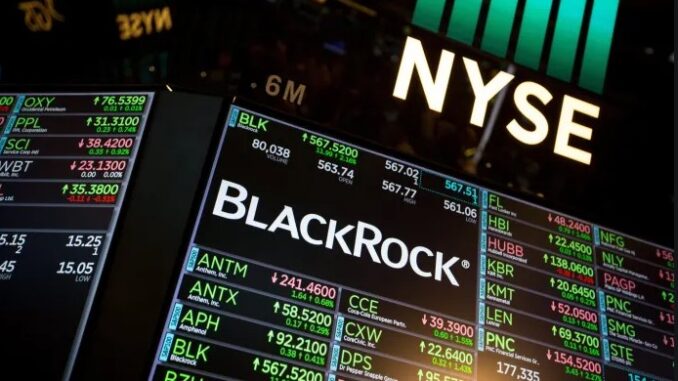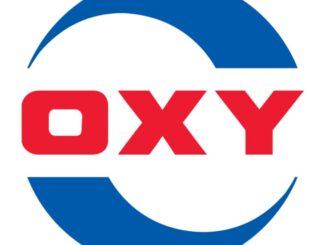
In the race to go green, companies are doing the bidding of a growing class of powerful, socially conscious investors who are pouring trillions of dollars into businesses that can tout their environmental, social and good-governance bona fides. ESG investments grew more than 140 percent in 2020 from the year before, according to Moody’s Investor Service, and now account for at least a third of all retirement savings, mutual funds and other managed accounts.
But as the Engie-Riverstone deal illustrates, greening a corporate balance sheet isn’t the same as greening the planet.
Regulators, investors and climate advocates are worried that utilities, oil producers and others, in their bid to meet investor and societal demands, are simply shifting plants, pipelines and other polluting assets to private firms that are less accountable.
“The climate impacts are the same,” Alyssa Giachino, climate director at the Private Equity Stakeholders Project, a watchdog group that tracks fossil fuel investments. “The climate crisis doesn’t care about your corporate structure.”
The practice is drawing scrutiny from U.S. regulators as the Biden administration considers mandatory reporting on the financial risks of climate change. Earlier this month, acting Securities and Exchange Commission Chair Allison Lee asked the public for ways to address “the significant gap” in disclosure requirements between public and private firms.
BlackRock, the world’s largest asset manager, also is sounding the alarm.
“If a corporation sells the dirtiest stuff to some private enterprise somewhere in the world and that private enterprise is doing exactly or even worse offenses to the environment, how do you define that?” BlackRock CEO Larry Fink said at a recent event hosted by The Brookings Institution. “The company looks better. They’re not doing greenwashing. By all the standards they look better. But the world is probably worse off.”
At Engie, a $29 billion multinational utility, the goal is to dismantle coal plants or convert them to gas or sustainable biomass, which have lower carbon footprints. If those options aren’t feasible, Engie sells the plants, company spokesperson Andrea Petolicchio said. The utility still has coal plants in Portugal, Chile, Peru, Brazil and Morocco, but plans to exit the sector by 2027.
Renewable energy accounts for 31 percent of Engie’s energy mix, a share the company hopes to nearly double by 2030.
While transactions such as Engie’s happen, it’s difficult to determine if they’re widespread. And the decision to sell a plant or pipeline typically isn’t based on ESG pressures alone, said Travis Wofford, who leads the corporate division at law firm Baker Botts in Houston.
“There’s no invisible hand or marketwide collective decision-making process to make divestments just so they can hide assets from BlackRock,” Wofford said. “Operating companies think on a long-term time horizon.”
That horizon is inching closer. Riverstone’s European power company, Onyx, will have to shutter its former Engie plant in the Netherlands by 2030 under a Dutch plan to phase out coal. Onyx applied for a $280 million subsidy to meet that deadline, according to the consulting firm Enerdata. The three former Engie plants Onyx owns in Germany will need to stop operating by 2038.
Riverstone in December said it had evaluated its carbon footprint and developed a strategy to offset emissions. Daniel Yunger, a lawyer who represents Riverstone, did not respond to questions about the firm’s coal plants.
Private equity firms have invested in fossil fuels for years and helped drive the American shale boom. Buyouts typically follow oil and gas downturns and 2021 is expected to be another volatile year for the industry. With environmental, social and governance pressures mounting, more utilities are considering dumping their dirtier assets.
In 2020, The Blackstone Group took Tallgrass Energy, a U.S. oil pipeline operator, private in a deal valued at $6.3 billion. The year before, Canadian energy company Emera, which promotes its commitment to decarbonization, sold three natural gas plants in New England to an arm of The Carlyle Group for $590 million. That same year, publicly traded Macquarie Infrastructure Corp. said it would sell 19 U.S. and Canadian storage terminals to Riverstone for nearly $2.7 billion.
Representatives of Tallgrass, Emera and Macquarie Infrastructure said environmental considerations played no role in their decisions to divest. Emera said it had cut emissions by 39 percent since 2005, not counting the divestiture.
”As a private company, Tallgrass continues to prioritize ESG efforts,” spokesperson Phyllis Hammond said, and the company continues to provide investors with ESG reports.
Private equity funds defend their activity and say they’re directing capital to renewables. While the firms aren’t required to disclose to regulators their holdings or risks, they do answer to their wealthy and institutional investors. And all companies, regardless of their legal structure, must meet environmental laws.
Private equity has invested about $41 billion renewables since 2010, according to data provided by the American Investment Council, a trade group. During that same period the firms spent nearly $154 billion on oil, gas and coal. In 2020, investments in renewables slightly outpaced those in fossil fuels, totaling nearly $17 billion each, according to council data.
The information such funds release to their investors is subjective and not available to the general public, said Giachino, whose group is funded by foundations and labor rights groups.
“There is a broader public interest and need to understand all contributions to climate change across public and private markets,” Giachino said. Private equity firms manage $4.5 trillion globally and are expected to grow substantially, and “producing a glossy report tells you nothing.”
She pointed to one such report from Blackstone that said oil exploration and production accounted for less than 3 percent of the value of the firm’s portfolio. The firm said its renewable energy investments were projected to displace 3.6 million metric tons of carbon a year.
The report failed to mention that just one of its holdings, the Gavin coal plant in Ohio, emits more than triple that amount of pollution, or 13.5 million metric tons of carbon, according to EPA data from 2020. The report also didn’t mention midstream assets such as Tallgrass, which pipes oil from Wyoming, Colorado and Kansas to a storage hub on the Gulf Coast and is building an export terminal in Louisiana.
Blackstone has said it’s moving away from coal and shifting its focus to natural gas and increasing investments in renewables. In an annual letter last year, the firm said it has stopped making new investments in oil sands and coal.
“Blackstone has dedicated significant resources over the past decade to reducing energy usage and investing in large-scale renewable energy projects, generating a massive positive impact for the communities where we operate,” a spokesperson for the company said a written statement.
Carlyle’s 2020 sustainability report highlighted holdings in the U.S. and Europe that are reducing emissions but didn’t mention its acquisition of the three natural gas plants in New England in 2019, which emitted a combined 1.35 million metric tons of carbon in each of the last two years, according to EPA data.
A Carlyle spokesperson declined to comment.
If anything, private equity firms can be more nimble than their public counterparts in response to climate change because they’re able to raise capital quickly and cheaply, said Jay Davis, managing director of Macquarie Infrastructure.
Macquarie’s sale to Riverstone was part of a long-term plan to sell assets and wasn’t connected to the Macquarie Group’s pledge in December to reach net-zero emissions by 2040, he said.
“One of the advantages of being a private equity or private company is not having to deal with public disclosure requirements. They are onerous, and there is a cost to it,” said Dave Brown, a partner at the law firm Alston & Bird. Investors “are having these discussions with private equity managers already because ESG is integrated into their investment strategy.”
Still, an uneven regulatory playing field could accelerate the current trend toward privatization, said Lee Reiners, executive director of Duke University’s Global Financial Markets Center and a former regulator at the Federal Reserve Bank of New York.
Between 2000 and 2017, the number of public companies shrank from approximately 6,900 to 4,300, while private companies jumped nearly fivefold, to more than 7,600, according to research from the University of Florida.
“If you create additional ESG disclosure requirements for public companies and did nothing else, you’d be further burdening public companies and providing incentive to stay private longer,” Reiners said. “We need a way to bring some level of accountability to private markets so they don’t get off scot-free.”



